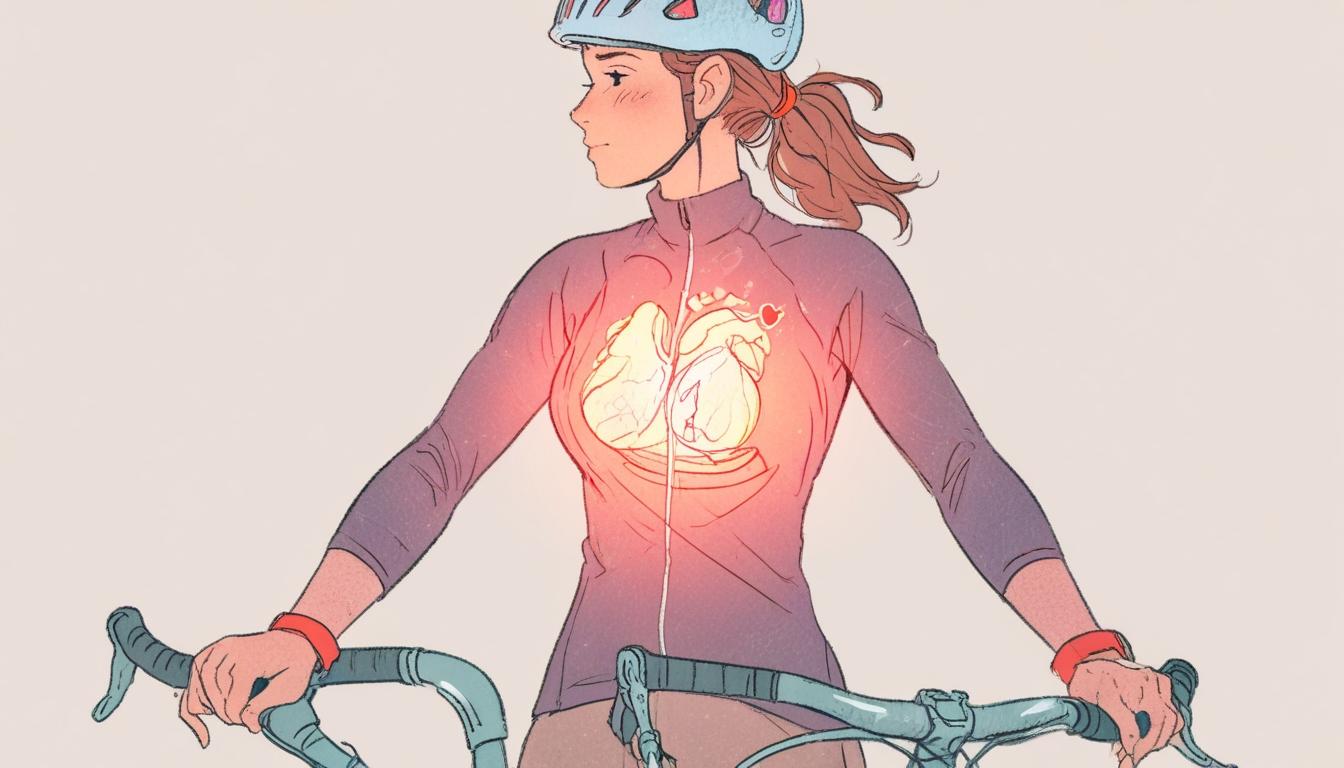Cycling Fitness to Cardiac Care: The Struggles of a Post-Vaccine Life
Just a few years ago, Danielle Pieton was the epitome of health and vitality. A dedicated road cyclist, she had successfully transitioned to life in France, where she pursued her passion for cycling while running a budding business with her partner. However, the onset of 2022 would drastically alter her trajectory when she received the Moderna Covid vaccine, a decision that would plunge her into a profound health crisis.
Within hours of receiving the jab, Pieton began to experience intense chest pain and dizziness, symptoms that would lead to her hospitalisation and two weeks in intensive cardiac care. Diagnosed with complete heart block, she was left with a permanent pacemaker, a stark reminder of the unexpected toll the vaccine had taken on her well-being. "Just today my head felt like I was being injected with helium," she recounted, reflecting on how her life had transformed since receiving the vaccine.
Living with what she describes as Post Vaccine Syndrome (PVS), a condition for which no cure currently exists, Pieton struggles with a range of debilitating symptoms: fatigue, breathlessness, and constant dizziness. Speaking candidly, she stated, “There are days where I’m bedridden. I would just want to exit my body.” This sentiment, articulated by many who suffer from chronic post-vaccination conditions, underscores the profound impact that vaccine-related health issues can have on individuals’ lives.
While Pieton’s experience is harrowing, it underscores a growing conversation around the potential side effects associated with mRNA vaccines. Research from Yale University has indicated a newly identified syndrome, termed post-vaccination syndrome, which includes symptoms such as brain fog, tinnitus, and exercise intolerance, raising questions about the long-term effects of these vaccines. Experts are calling for further investigation to better understand the prevalence and risk factors associated with this condition.
In the backdrop of individual cases like Pieton's, wider studies indicate that while vaccine-related complications do exist, they tend to be less severe than those resulting from Covid infections themselves. For instance, a study published in the Journal of the American Medical Association found that while myocarditis cases post-vaccination are concerning, they are less severe than those caused by actual Covid-19 infections. Specifically, only 5.7% of patients who experienced post-vaccination myocarditis faced cardiovascular complications within 18 months, compared to 12% for those recovering from Covid-induced myocarditis.
Additionally, the Centres for Disease Control and Prevention (CDC) noted a likely association between mRNA vaccines and rare cases of inflammation of the heart, particularly in younger males. However, they maintain that the protective benefits of vaccination far outweigh these risks, reiterating the importance of vaccination in preventing widespread illness and death.
The balancing act between public health needs and individual health outcomes has never been more complex. Thousands have recounted personal stories of health complications post-vaccination, leading to calls for enhanced monitoring and research into these adverse effects. As health authorities continue to assess the safety of vaccines, the stories of individuals like Danielle Pieton serve as a poignant reminder of the human experience underlying clinical data.
Pieton continues to adapt to her new reality in Séez, striving to reclaim her active lifestyle through activities like riding an e-bike. "I'm determined to live my best life and do as much as I can," she affirmed. Her journey reflects not only her resilience but also the broader implications of vaccine side effects as society seeks to navigate the ongoing challenges posed by Covid-19 and its aftereffects.
##Reference Map:
- Paragraph 1 – [1]
- Paragraph 2 – [1], [5]
- Paragraph 3 – [1], [2], [3]
- Paragraph 4 – [1], [6]
- Paragraph 5 – [2], [4]
- Paragraph 6 – [3], [5]
- Paragraph 7 – [1]
Source: Noah Wire Services
